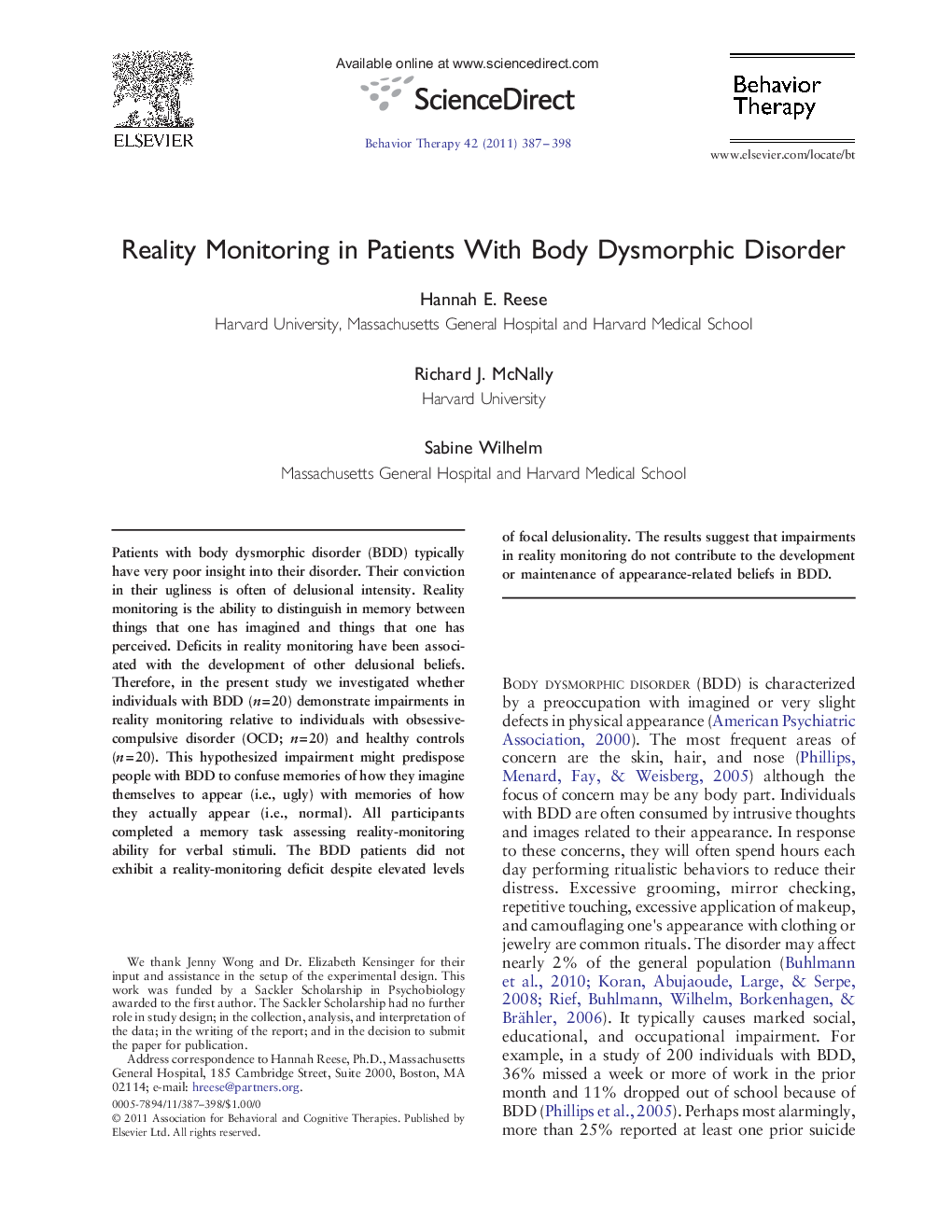| Article ID | Journal | Published Year | Pages | File Type |
|---|---|---|---|---|
| 901423 | Behavior Therapy | 2011 | 12 Pages |
Patients with body dysmorphic disorder (BDD) typically have very poor insight into their disorder. Their conviction in their ugliness is often of delusional intensity. Reality monitoring is the ability to distinguish in memory between things that one has imagined and things that one has perceived. Deficits in reality monitoring have been associated with the development of other delusional beliefs. Therefore, in the present study we investigated whether individuals with BDD (n = 20) demonstrate impairments in reality monitoring relative to individuals with obsessive-compulsive disorder (OCD; n = 20) and healthy controls (n = 20). This hypothesized impairment might predispose people with BDD to confuse memories of how they imagine themselves to appear (i.e., ugly) with memories of how they actually appear (i.e., normal). All participants completed a memory task assessing reality-monitoring ability for verbal stimuli. The BDD patients did not exhibit a reality-monitoring deficit despite elevated levels of focal delusionality. The results suggest that impairments in reality monitoring do not contribute to the development or maintenance of appearance-related beliefs in BDD.
